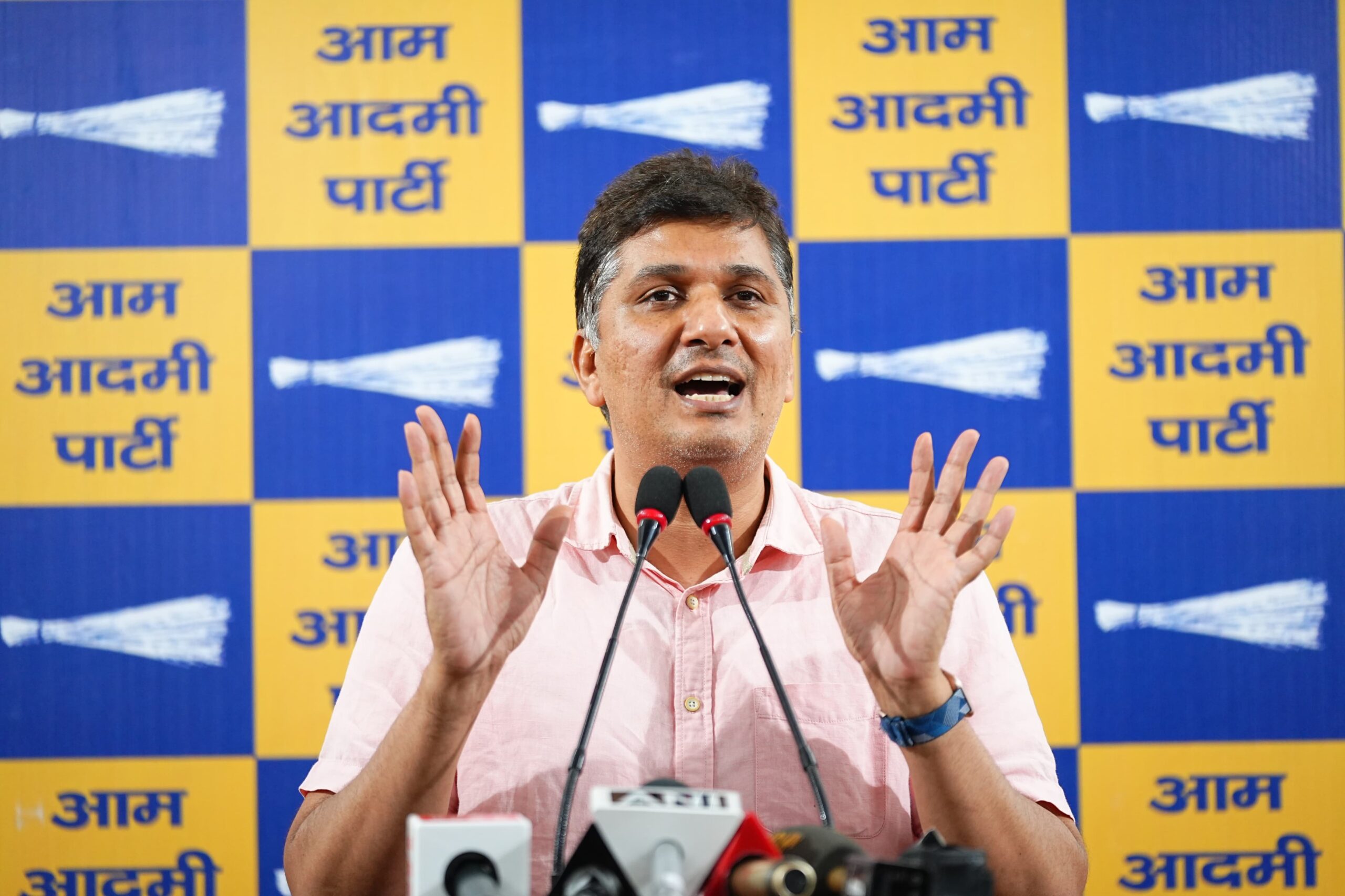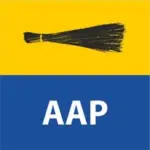As temperatures soar, Delhi is parched. From South Delhi’s Deoli to the heart of West Delhi’s Janakpuri, taps have run dry, ‘matkas’ are being shattered in protest, and desperate residents are spending sleepless nights queuing at tube wells for a few litres of water. In just four months, the BJP’s so-called ‘four-engine government’ has brought the capital to its knees. Areas that enjoyed steady supply for years under the AAP government are now battling daily shortages, collapsed tanker management, and rising public anger. The water crisis has laid bare a stunning collapse of governance—one that Delhiites are now confronting in protest, bucket in hand, as they begin to miss the Arvind Kejriwal government.
During a press conference, AAP Delhi State President Saurabh Bharadwaj stated, “It’s been nearly four months since the BJP formed its government in Delhi. That is more than enough time for any new government to begin delivering something new and better for the people. But here we are in June, and across various parts of Delhi, there is such an acute water shortage that people have become helpless. Such a severe crisis has rarely been witnessed in the city.”
Listing impacted areas across Delhi, the AAP Delhi State President added, “Take South Delhi for instance—there is a major water shortage in Ambedkar Nagar. In Deoli, people are staging protests outside Jal Board offices and recently broke ‘matkas’ in protest. In Badarpur, today’s newspapers reported how people have to stay awake all night for water and queue up for hours just to get a few litres from tube wells. Tughlakabad is facing the same fate, and the number of water tankers there has been halved from 40–46 to just half of that. Chhatarpur is struggling, and so is Mehrauli.”
Saurabh Bharadwaj continued, “There are severe shortages in Bijwasan and Palam. In North Delhi, water is scarce in Timarpur, Model Town, Adarsh Nagar, and Burari. In West Delhi again—Hari Nagar, Rajouri Garden, and Janakpuri—all are facing supply issues. Even Greater Kailash, where water supply had been stable for years under the previous AAP government, is now suffering. The situation has completely collapsed, and so has water tanker management.”
The former Delhi Minister stated that every government prepares a ‘Summer Action Plan’ before the onset of heatwaves. Tube wells are a basic part of that. I want to ask the BJP government in Delhi—how many tube wells have you installed this summer? I’m not talking about those installed from MLA funds. We had allocated an extra Rs 5 crore per MLA so they could carry out such work. “But how many new tube wells has the Delhi government installed under its own plan? The public deserves an answer,” he asked.
Highlighting the gravity of the situation, Saurabh Bharadwaj said, “Even today, Delhi is reporting a shortfall of 100 million gallons of water per day (MGD). BJP has a four-engine government—MCD, Delhi government, Centre, and LG—and yet you can’t secure water from Haryana, nor manage the supply from the Centre.”
“BJP used to claim that there is no water shortage, only poor management. So where is that management now? If LG couldn’t explain it to us, at least explain it to your own government. Why is there no improvement,” Saurabh Bharadwaj asked. He pointed to Delhiites breaking ‘matka(s)’ in protest across Delhi, but he stressed, “the government continues to sleep.”
Meanwhile, senior AAP leader and former MLA Akhilesh Pati Tripathi highlighted that Delhi is crying out for water. Quoting his own constituency, Model Town, he said, “Just three days ago, people in my area held a Matka Phod demonstration. There is no water in Khilona Bagh, in Lal Bagh, or in Rajpura village where water used to be a non issue under Arvind Kejriwal’s tenure. Guru Nanak Gali has no water. In Rana Pratap Bagh’s B Block, people are getting dirty water. In Roop Nagar too, residents have filed complaints.”
He emphasised that Delhiites are now realising that Arvind Kejriwal’s was a government of best management, while BJP’s is a government of failure—not delivering water, not providing electricity, not controlling school fee hikes. On all fronts, the BJP’s four-engine model has failed Delhi.




